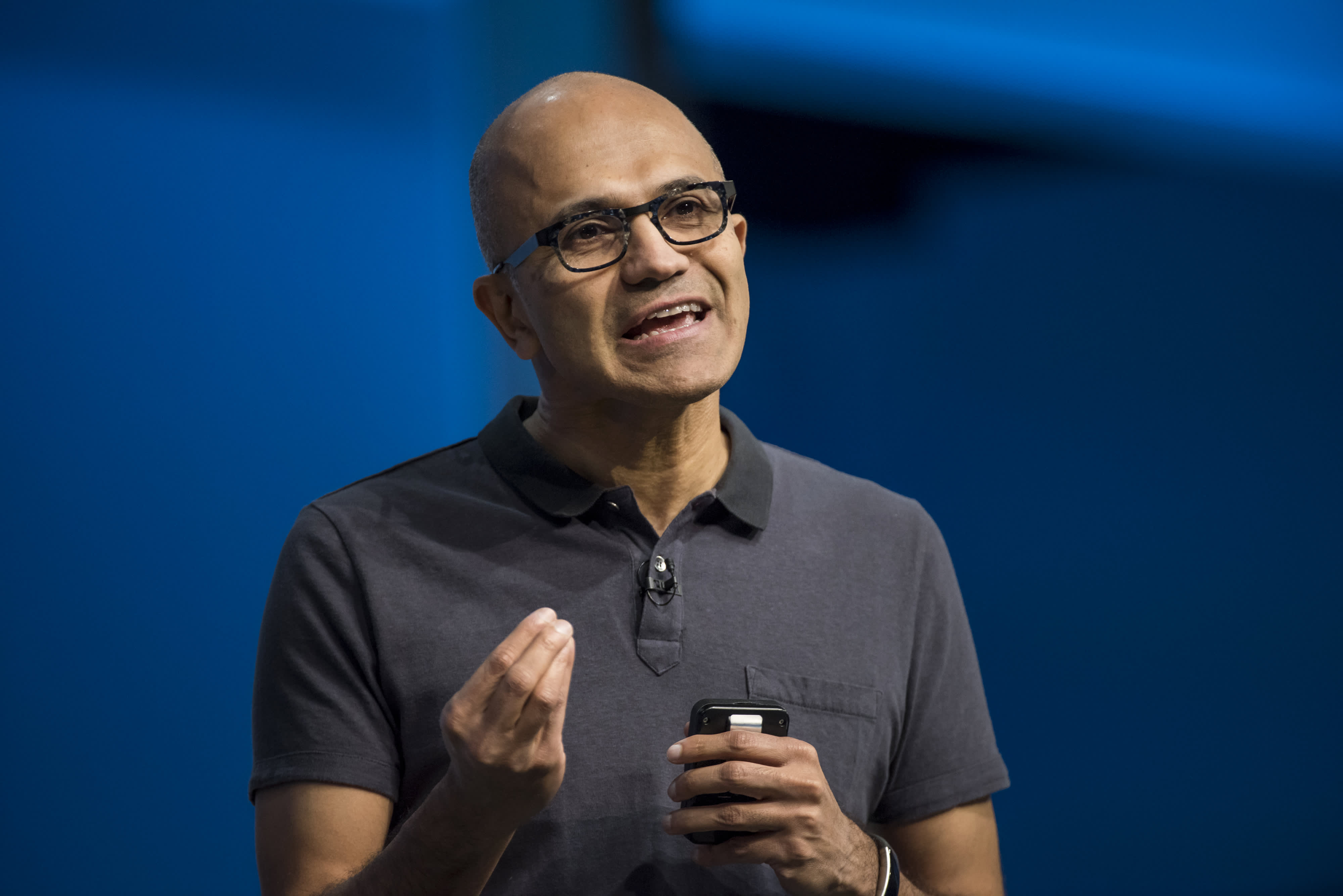Microsoft reported better-than-expected earnings and revenue for the fiscal second quarter. The stock dropped in extended trading but went positive after the company issued better-than-expected quarterly revenue guidance.
Here’s how the company did:
- Earnings: $2.48 per share, adjusted, vs. $2.31 per share as expected by analysts, according to Refinitiv.
- Revenue: $51.73 billion, vs. $50.88 billion as expected by analysts, according to Refinitiv.
Revenue increased by 20% year over year in the quarter, according to a statement, compared with almost 22% growth in the previous quarter. Microsoft’s net income of $18.77 billion swelled by 21%.
The company had $36.77 billion in unearned revenue at the end of the year, below the StreetAccount consensus of $36.90 billion. Microsoft said it expects to recognize 45% of its $152 billion in remaining performance obligation over the next year, the first time that percentage has slipped below 50% since at least 2017.
Amy Hood, Microsoft’s finance chief, said the company is expecting $48.5 billion to 49.3 billion in revenue in the fiscal third quarter, topping the $48.23 billion Refinitiv consensus. The middle of the range, at $48.9 billion, is above the $48.23 billion Refinitiv consensus. Hood said the company now expects full-year operating margins to widen slightly.
Microsoft’s Intelligent Cloud segment, which contains the Azure public cloud, GitHub and server products such as Windows Server, generated $18.33 billion in revenue. That works out to 25.5% growth, and it’s a bit more than the $18.30 billion consensus among analysts surveyed by StreetAccount.
Revenue from Azure and other cloud services grew 46%, ending a streak of at four quarters at or above the 50% mark. The expectation was 46%, according to a CNBC survey of 15 analysts, while analysts polled by StreetAccount had been looking for 45.3% Azure growth. Microsoft doesn’t disclose Azure revenue in dollars.
Revenue from the More Personal Computing segment, which includes Windows, advertising, devices and gaming, totaled $17.47 billion. That’s up 15.5% and above the StreetAccount consensus of $16.56 billion.
Microsoft said sales of Windows licenses increased by 25% in the fourth quarter. Technology industry research firm Gartner estimated that PC shipments had fallen 5%.
Xbox hardware revenue went up 4% with the passing of the one-year anniversary of Microsoft’s launch of the Xbox Series X and Series S consoles. In the previous quarter Xbox hardware revenue had spiked 166%. The gaming component of Microsoft, now representing almost 11% of total revenue, became more relevant to investors this month when the company announced plans to acquire Call of Activision Blizzard, the publisher behind the “Call of Duty” and “Diablo” franchises, for $68.7 billion, the largest deal in Microsoft’s 46-year history.
The Productivity and Business Processes segment that includes Office, Dynamics and LinkedIn posted $15.94 billion in revenue, amounting to 19% growth. Analysts polled by StreetAccount had expected $15.86 billion.
Satya Nadella, Microsoft’s CEO, said on a call with analysts that the company had generated $15 billion in security revenue in 2021, up nearly 45%. In 2020 security revenue had grown more than 40%.
As of the close on Tuesday, the stock is down 14% since the start of 2022, amid a broad selloff in technology stocks as investors brace for rising interest rates. The stock is on pace for its worst month since 2010.
“We’d be buyers here,” said Christopher Ouimet, a portfolio manager at Logan Capital Management, an investment firm based in Newtown Square, Penn., with about $60 million in Microsoft stock at the end of the fourth quarter. “We think there’s a lot of noise in the marketplace right now. Most of the high-growth stocks are getting washed out here, but we don’t really feel like the 10-year going from 1.5% to 1.8% means Microsoft isn’t going to be able to sell Azure contracts.”
He said investors could be missing the effect of foreign-exchange rates that made segment results look less impressive in comparison with Microsoft’s previous forecast. Adjusting the Intelligent Cloud and Productivity and Business Processes segments would mean results came in above the high end of the guidance, he said.
During the quarter, Microsoft released Windows 11 as the successor to Windows 10 and introduced the $249 Surface Laptop SE for school use that runs a special version of Windows 11. The company also announced the acquisition of Ally.io, whose software helps companies stay on top of key goals.
This is breaking news. Please check back for updates.
